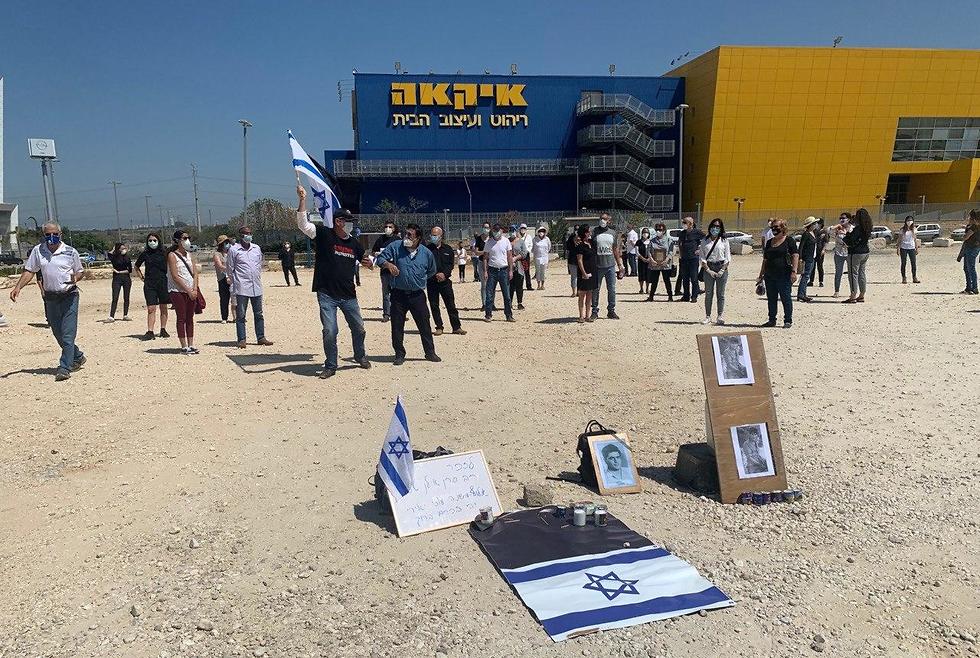Getting your Trinity Audio player ready...
A two-minute siren for Memorial Day sounded across Israel at 11am Tuesday as the country remembered its 23, 816 fallen soldiers and 4,166 victims of terror, with most commemorations taking place remotely due to coronavirus regulations.
The siren was immediately followed by a national remembrance ceremony for the fallen soldiers at Mount Herzl military cemetery in Jerusalem, held, like every other commemoration this year, without the usual participation of bereaved relatives.
6 View gallery
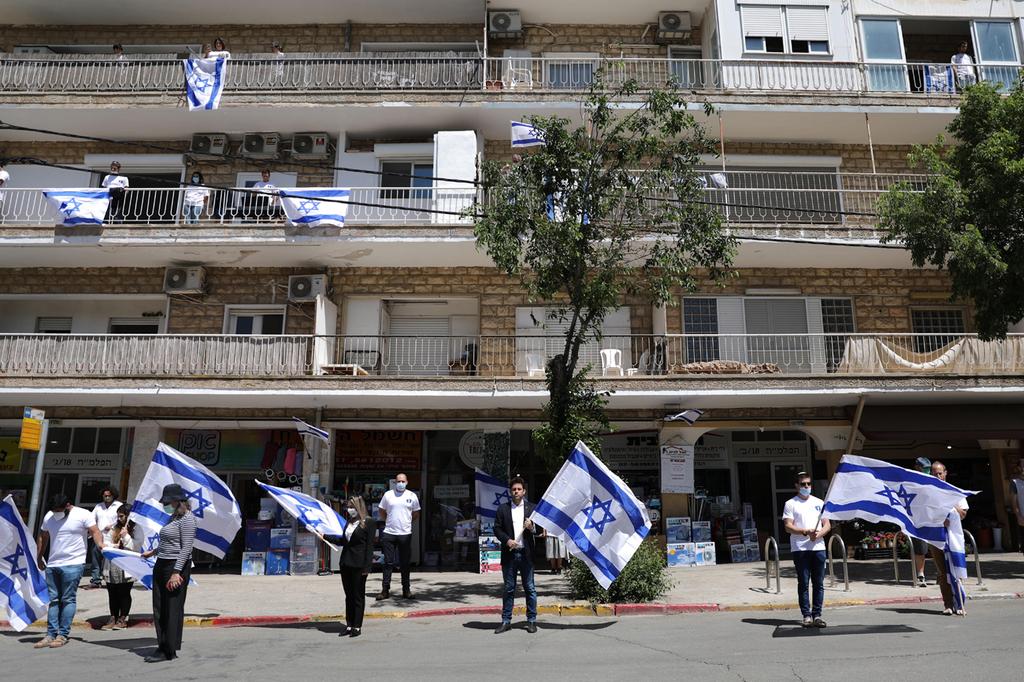

Israelis stand in silence in Jerusalem as a two-minute siren sounds to honor the dead on Memorial Day
(Photo: EPA)
Instead, war veterans held video chats from home about lost comrades or watched roll-calls of the dead aired every year by the local TV stations.
Israel stands still for Memorial Day siren
President Reuven Rivlin, Prime Minister Benjamin Netanyahu and Defense Minister Naftali Bennett were among the few to participate in the shortened event at Mount Herzl.
Addressing the ceremony by video message, Netanyahu said the State of Israel and its military are an enduring testimony to the Jewish people’s decision to take its fate and its defense into its own hands after thousands of years of helplessness.
6 View gallery
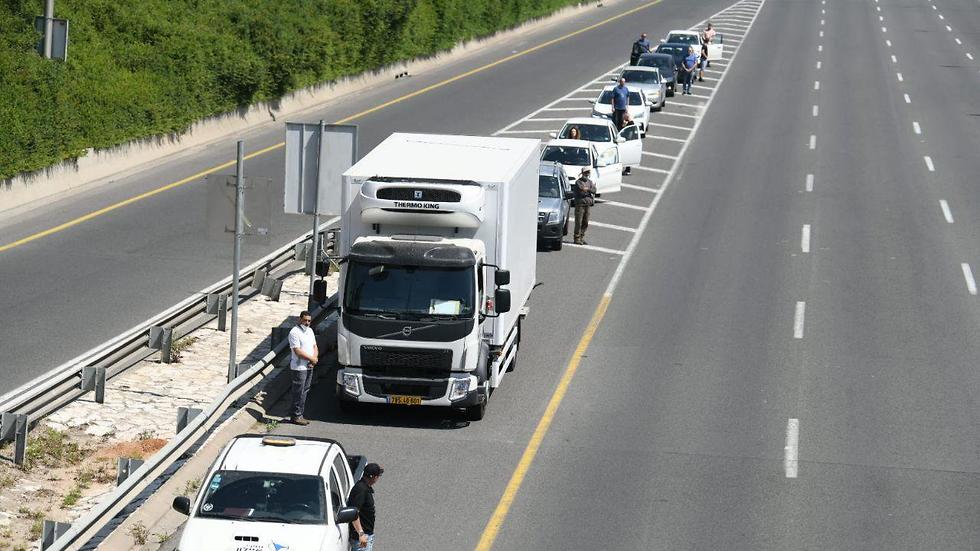

Israelis stand by their vehicles in Tel Aviv as a two-minute siren sounds to honor the dead on Memorial Day
(Photo: Yair Sagi)
Netanyahu said Israel’s “decisive policy toward those who would harm us prevents new victims" and vowed that Israel “will always be prepared to act to rebuff threats.”
The prime minister also pledged "to continue to work tirelessly to return our missing and our prisoners,” naming the two Israelis held by the Hamas terror group in Gaza, Avera Mengistu and Hisham Al-Sayed, as well as Oron Shaul and Hadar Goldin, the two fallen soldiers whose bodies are also held by the group.
6 View gallery
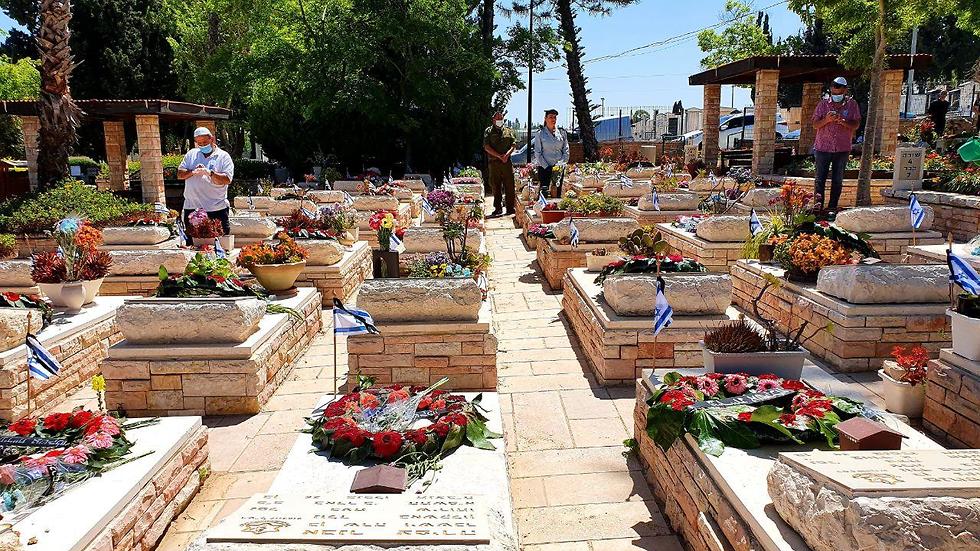

Bereaved Israelis at the military cemetery in Ashkelon on Memorial Day
(Photo: Roee Idan)
The main memorial service for the victims of terror attacks was to be held at 1pm, also without an audience.
Large numbers of police officers have been posted across Israel to enforce the ban on visits to military cemeteries, which prevents bereaved families from visiting the graves of loved ones, an Israeli tradition on the day to commemorate fallen soldiers and terror victims.
6 View gallery
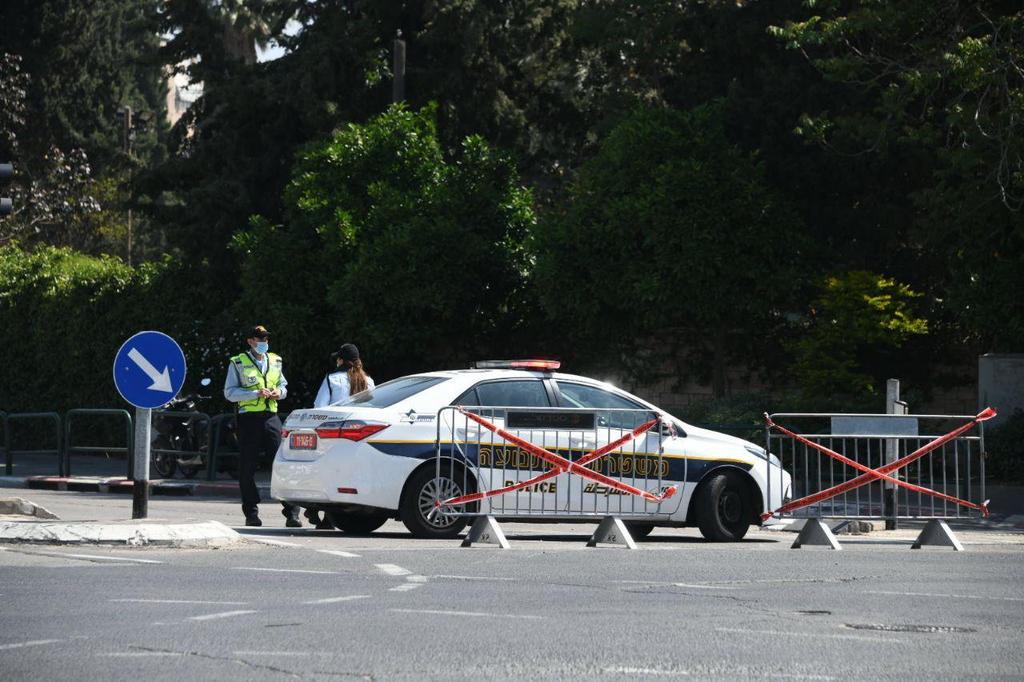

Police block the entrance to the military cemetery in Givatayim on Tuesday
(Photo: Yair Sagi)
Officers have been instructed not to use force to prevent people from entering the cemeteries but to try to persuade not to do so.
Despite the ban, a small number of people entered cemeteries Tuesday to pay their respects, while some bereaved families protested outside IKEA in Rishon Lezion over the fact that the furniture chain has been allowed to reopen and the cemeteries were closed.
Netanyahu earlier offered his sympathies to families unable to visit the graves of fallen loved ones on Memorial Day due to the restrictions.
"My brothers and sisters in the family of the bereaved, we have known different Memorial Days. This year we remember our sons and daughters the glorious heroes in the midst of the fight against the coronavirus," said Netanyahu.
"We will do so with determination, fierceness and national unity. These values are the legacy of the fallen, the legacy of our loved ones," the prime minister said.
6 View gallery
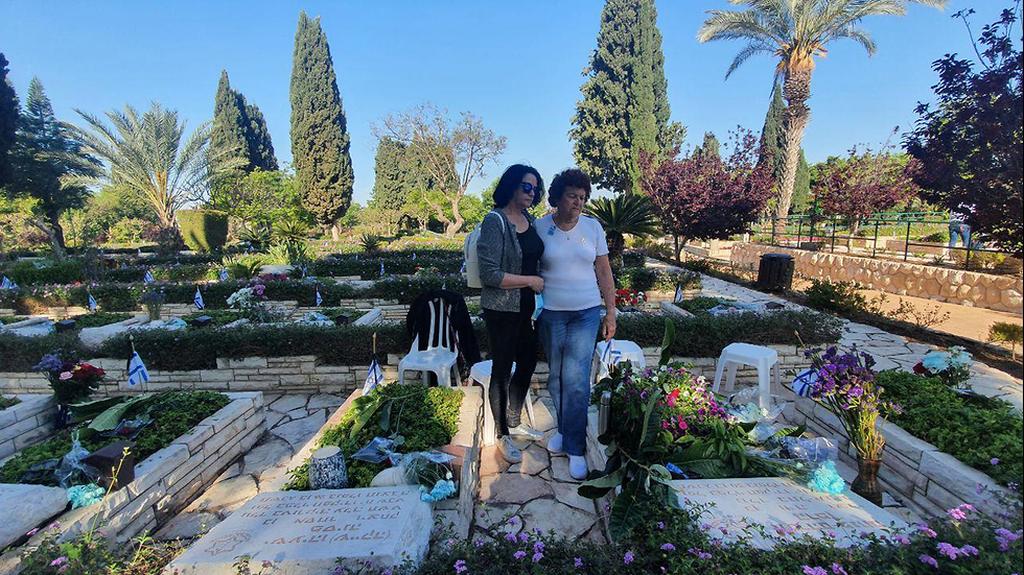

A bereaved family visits the grave of a loved one at a cemetery in Tel Aviv on Memorial Day
Netanyahu's brother Yonatan was killed in a 1976 mission to rescue hostages from Palestinian terrorists who hijacked an Air France plane and flew it to Entebbe.
"I know how hard it is, because like you, I want to be at the graveside of my brother, may his memory be a blessing," Netanyahu said.
"They would want us all to continue living in health and security. This year we will remember them in many other ways."
The virus also overshadowed the official state ceremony to mark the start of national day of mourning, which was also held Monday night without the usual audience of bereaved families and dignitaries.





